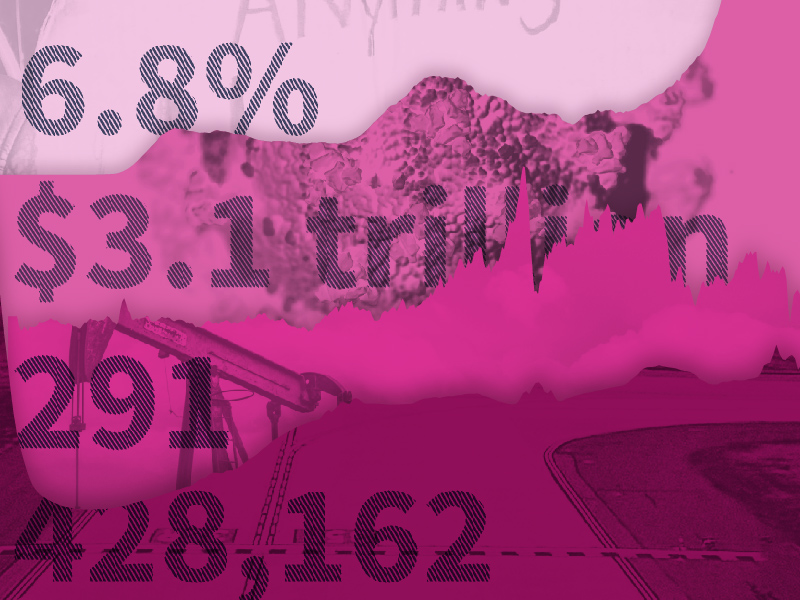Government spending
21 numbers that shaped 2021

The 2022 Supreme Court session addressed key questions on individual rights and the right of the government to regulate industry.
In those cases, the court reversed or changed many long-held legal precedents, with the three newest justices to the court often voting with the majority.
A look at government data can provide insight into the potential impact of these rulings.
In West Virginia v. The Environmental Protection Agency (EPA), the Supreme Court restricted the EPA’s ability to regulate the carbon emissions of power plants. The ruling stated that in the Clean Air Act, Congress did not give the EPA the explicit authority to broadly limit power plant carbon emissions. Under the new ruling, the EPA will be able to regulate individual power plants but was prevented from implementing more far-reaching approaches without congressional authorization.
Carbon emissions overall differ greatly by state. Nationally, transportation recently overtook electricity production as the economic sector with the largest contribution of emissions.
Read more about carbon emissions by state.
In Biden v. Texas, the Supreme Court sent the cases concerning the Remain in Mexico policy back to lower courts. This allows the Biden administration to reverse the policy for now while it waits for the federal district court to rule on the case again. The Remain in Mexico policy (also referred to as Migrant Protection Protocols) was created during the Trump administration and required asylum seekers to remain in Mexico until a decision on their asylum application is reached.
The court ruled that while the Trump administration was within its right to force asylum seekers to return to Mexico to wait, immigration law does not mandate they must return, so Biden has leeway to reverse the policy. Though the Biden administration terminated the program in 2021, Texas sued to have it reinstated and won the case in the US District Court for the Northern District of Texas. The program began re-enrolling people in December 2021, as per the court order.
In Kennedy v. Bremerton School District, the Supreme Court ruled that the First Amendment guaranteed the right of school employees to pray on a public school’s football field. Coach Joseph Kennedy had left his job after the school board asked him not to pray on the school’s football field after games if it involved students. He then sued the school district for violating his constitutional rights. The court’s 6-3 majority ruled that his prayers did not impose his beliefs on his students and qualified as a protected expression of speech.
In Dobbs v. Jackson Women’s Health Organization, the Supreme Court upheld a Mississippi law that bans most abortions after 15 weeks. In the process, the ruling overturned the constitutional right to abortion established in Roe v. Wade in 1973.
Immediately after the ruling, 13 states with "trigger laws" banned abortion as early as six weeks into pregnancy. About 97,000 abortions were performed in these 13 states in 2019.
In New York State Rifle and Pistol Association v. Bruen, the Supreme Court ruled that New York’s requirement to prove a need for self-protection in order to get a license to carry a concealed weapon violated the Second Amendment. In 2021, 33 states and Washington, DC allowed concealed carry of a firearm with a permit. The other 17 states have no restrictions on concealed firearms. While states will still be able to put restrictions on guns in some public places such as schools, government buildings, and polling places, the court asserted that the list of "sensitive places" must not be defined too broadly.
California, Hawaii, Maryland, Massachusetts, and New Jersey, which all have similar concealed carry gun laws to New York, may have to rewrite their gun regulations to comply with the ruling.
Learn more from USAFacts and get the data directly in your inbox by signing up for our newsletter.
Newsletter
Keep up with the latest data and most popular content.